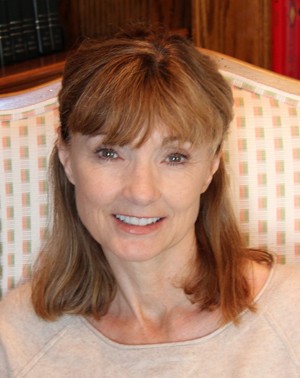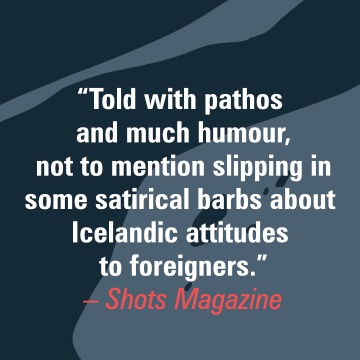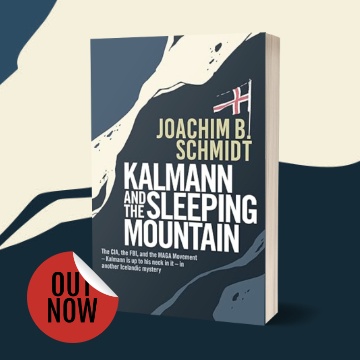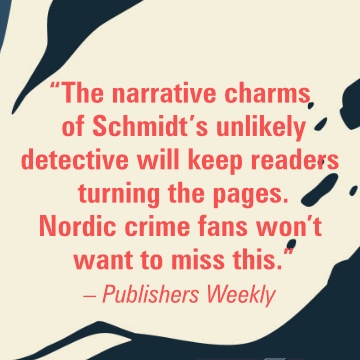 Deborah Serra’s brand new thriller Primal has the confident voice, relentless pace and cinematic quality few would associate with a debut novel – until you find out that the author has been a successful screenwriter for many years. A family camping trip in Minnesota’s woods turns into a nightmare when four psychotic brothers arrive at the resort. Alison, a caring suburban wife and mother, is the only one who can stop them, but what far-reaching consequences is this going to have on her and her family? We asked Deborah to join us here for a Crime Fiction Lover Q&A…
Deborah Serra’s brand new thriller Primal has the confident voice, relentless pace and cinematic quality few would associate with a debut novel – until you find out that the author has been a successful screenwriter for many years. A family camping trip in Minnesota’s woods turns into a nightmare when four psychotic brothers arrive at the resort. Alison, a caring suburban wife and mother, is the only one who can stop them, but what far-reaching consequences is this going to have on her and her family? We asked Deborah to join us here for a Crime Fiction Lover Q&A…
How would you describe Primal and what inspired you to write it?
Primal is a crime fiction thriller with a potent psychological element. The female protagonist is an everyday woman: a mom, schoolteacher, wife – with a loving marriage and a genuinely happy life. This particular story was inspired by my interest in examining the scars of violence, and the primal nature of a mother’s instincts. I’m a gentle person, but after I had my children I noticed this awakening of a defensive mechanism that seemed so unlike me, residing deep in my subconscious. When another kid bullied my little girl I could feel myself rising up like a warrior. I let my imagination explore what the ultimate manifestation of that awakening might be, what it might drive a loving mom to do.
There is quite a bit of a back story already behind the writing of Primal…
I’ve been a screenwriter for many years. At that time, in Hollywood there was a tacit understanding that women couldn’t write gritty crime. So I wrote Primal, using the name DA Serra rather than Deborah, to make a point, and was thrilled to sell it to James Cameron.
I wrote in all genres, everything from the children’s TV series Punky Brewster to Primal, and from comedy to horror. I like stepping in and out of those different worlds. Subsequently, Cameron decided he only wanted to make films he wrote himself and transferred the screenplay rights to Twentieth Century Fox. I contacted FOX and asked them if I could have the rights to turn Primal into a novel, and they could keep the film rights, and they agreed.
What have you found to be the biggest differences between writing a screenplay and a novel?
One of the challenges of screenwriting is having to tell an entire story in dialogue. With rare, very brief, exceptions, a writer cannot venture into a character’s thoughts, or into exposition of any kind. Everything about your story must come out of a character’s mouth, expression, and physical actions on screen. One of the reasons I have moved to novels is because I was craving the creative freedom to go deeper, to write sentences where the metaphor mattered, where the style and language were part of the story, where I could delve into a character’s past and memories.
Primal seems to me a book of contrasts – prison brutality versus serene suburban life, civilisation versus the wild, dysfunctional versus normal loving family. How did you research the darker scenes?
For me, it is too easy to see the darker scenes of life – I must be vigilant about what I allow myself to watch in the news, or what I read. I see, and I feel injured by the darkness of the human condition all around me, all the time. It is not a function of finding it for me, it is a function of keeping the reality of it away from me, so it doesn’t recur in my thoughts. I try to focus on the people I love, and the good things, but the bad? The dark? It’s always knocking on my door, always whispering in my ear at night.
What can you tell us about your future or ongoing projects?
I have three projects I’m working right now. One is a small film, a multi-generational comic romance, currently out to financing.
I also have a non-fiction project I’m writing with my sister: a humorous travelogue about our trip to Ireland to drink our way out of empty nest syndrome together.
And the third is a serious literary fiction work that examines recent advancements in research on the brain and cognition, which suggests we don’t really have free will or deliberate the way we think we do.
I am not sure I will ever be able to go camping or fishing after reading your novel. What does your ideal holiday look like?
I’m an avid solo traveler. I have been to seven countries in the last year and a half. Now that my kids are older, I leave my husband and family home, and take off alone for a few weeks now and then. It gives me a kind of solace that I can’t find unless I’m lost in the world by myself. So, my favorite holiday is waking up somewhere I’ve never been, somewhere historical, where I don’t speak the language, where no-one needs me for anything, and then venturing into an unknown world to find coffee and imagine the lives of the people who live there.
Primal is out now. Watch for the review soon here on Crime Fiction Lover.








